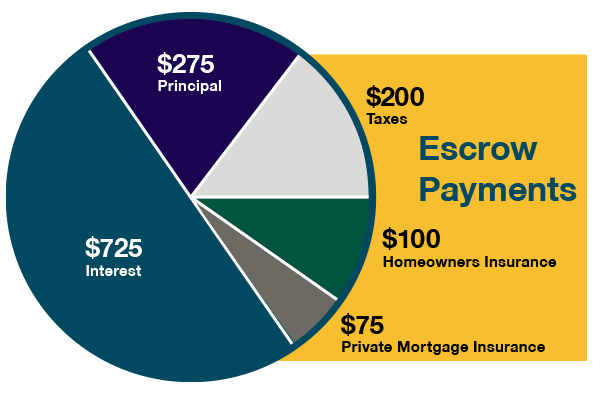Discover the ins and outs of escrow accounts with our comprehensive guide, as we delve into the advantages and disadvantages of this financial tool. Whether you’re a homebuyer or a seller, an escrow account can offer security and convenience during real estate transactions. But, like any financial instrument, it also comes with its share of potential drawbacks. Unveil the pros and cons of utilizing an escrow account, and make an informed decision on whether it’s the right choice for your property journey. Read on to unlock the secrets and boost your real estate savvy today!
Financial planning: Escrow accounts allow homeowners to plan their finances effectively by spreading out the annual costs of property taxes and insurance premiums into smaller, monthly payments

Financial planning made easier with Escrow accounts: One of the significant advantages of utilizing an escrow account is the convenience it offers in managing your household budget. Instead of scrambling to gather lump sum amounts for property taxes and insurance premiums, homeowners can seamlessly integrate these expenses into their monthly mortgage payments. This systematic approach not only alleviates stress but also ensures timely payments, preventing potential penalties or lapses in coverage. As a result, homeowners can maintain a stable financial footing and dedicate their attention to other essential aspects of personal finance, such as saving for emergencies or planning for future investments.
This eliminates the need for large lump-sum payments, making it easier for homeowners to budget their expenses.

An escrow account offers homeowners the advantage of spreading out their property tax and insurance expenses into manageable monthly payments. This eliminates the need for large lump-sum payments, making it easier for homeowners to budget their expenses effectively. By incorporating these costs into their monthly mortgage payments, homeowners can avoid the financial stress of sudden, hefty charges and maintain a stable cash flow. This financial planning tool not only provides peace of mind but also ensures timely payments, safeguarding homeowners from potential penalties or lapses in coverage. Overall, an escrow account promotes greater financial security and convenience for property owners.
Timely payments: Escrow accounts ensure that property taxes and insurance premiums are paid on time

Timely Payments: One of the significant advantages of utilizing an escrow account is the assurance of prompt and consistent payments for property taxes and insurance premiums. By incorporating these expenses into your monthly mortgage payment, an escrow account eliminates the stress of remembering due dates and prevents the risk of incurring late fees or penalties. This streamlined approach not only helps you maintain a positive payment history but also safeguards your property from tax liens or lapses in insurance coverage. In essence, an escrow account acts as a reliable financial management tool that ensures your property-related expenses are always well-organized and up-to-date.
Homeowners do not have to worry about missing a payment, as the escrow account management company will make the payments on their behalf.

One of the key advantages of utilizing an escrow account is the peace of mind it provides homeowners, as they no longer need to stress about missing crucial payment deadlines. An escrow account management company diligently takes care of making timely payments on behalf of the homeowner, ensuring that property taxes and insurance premiums are always paid on time. This not only helps maintain a good credit score but also safeguards against potential penalties or lapses in coverage. By entrusting the responsibility of managing these payments to an escrow account service, homeowners can focus on other aspects of their lives, knowing their financial obligations are being met without any hassle.
Protection of property: By ensuring that property taxes and insurance premiums are paid on time, an escrow account helps protect a homeowner’s investment in their property

An escrow account offers a valuable safeguard for homeowners by diligently managing the timely payment of property taxes and insurance premiums. This proactive approach not only preserves the homeowner’s investment, but also promotes financial stability and peace of mind. Moreover, timely payments help maintain a positive relationship with local tax authorities and insurance providers, thus preventing potential penalties or lapses in coverage. In essence, an escrow account serves as a vigilant custodian, ensuring that a homeowner’s most valuable asset – their property – remains secure and well-protected from unforeseen risks and financial pitfalls.
This is particularly important for first-time homeowners or those who have had previous

An escrow account can be highly beneficial for first-time homeowners or individuals who have had previous financial challenges, as it simplifies the budgeting process and ensures timely payments. By consolidating property taxes and homeowners insurance into a single, manageable monthly payment, these individuals can avoid unexpected financial burdens that may arise from sudden expenses. Moreover, an escrow account can provide peace of mind by eliminating the risk of late fees or penalties associated with missed payments, potentially safeguarding one’s credit score and financial reputation. However, it is essential to weigh the pros and cons of an escrow account to determine if it is the best fit for your financial needs and goals.




